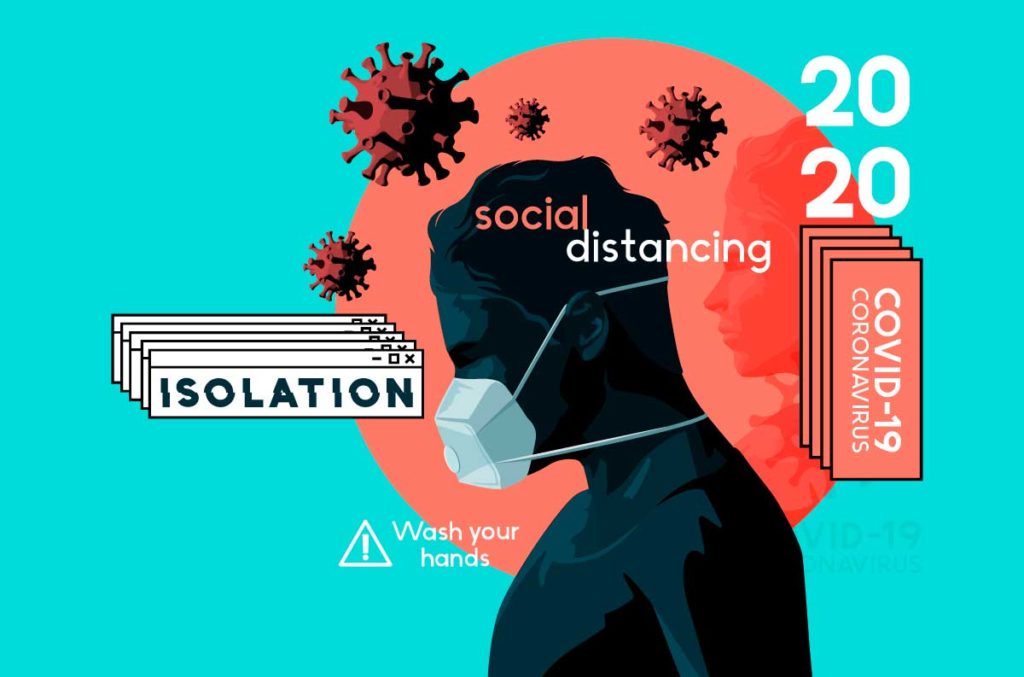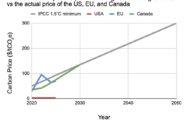We’re All in this Together
Climate Solutions Beyond Your Backyard
As we begin to recover from Covid, fixing climate is critical to protect us from new infectious disease threats
By Ed Pontius, M.D.

Okay, it’s spring in Portland. It’s getting green and we’ve got flowers. We may have had a ghastly year with Covid, but we’ve made some real progress with vaccination, and we can begin to believe we’re getting our lives back. So why should we have to think about new health threats around the corner – with climate? They keep talking about “one or two degrees warmer.” How would I even notice that? Why should I care about climate threats to health after everything we’ve been through?
There’s no doubt we’ve had a rough year.
Way too many people have died and too many of us are suffering from long-haul complications. Even as we’re worried about possible additional waves and new strains of the virus. Entire sectors of the economy and many businesses and jobs have been ravaged. It’s been scary and our lives have been turned upside down. I get it. It seems like we’ve suffered enough. We really want to go back to life before the virus, to have a normal life again.
Unfortunately, we can’t go back. Life didn’t go to hell for us in 2020 because of some blunder we made last year. The truth is that we’ve been driving faster and faster on the edge of catastrophe for some time. We’ve been living on this planet in ways that were definitely going to catch up with us. So, 2020 was when it caught up with us.
COVID-19 wasn’t a fluke.
The best evidence is that what we’ve been going through with Covid-19 was certainly the result of damage to our environment. Specifically, the result of our expanding land for animal agriculture at the expense of the little remaining habitat for wildlife. Animals such as bats – used to spending their entire lives hidden away from people, deep in the jungle – have little habitat left and have been forced into contact with people and particularly our pigs and other livestock.
The Covid virus had been a part of life for these wild animals (what we call ‘endemic’), until we forced animals into contact with domestic animals and with us. An infection that begins as a microbe endemic to an animal population and then goes on to infect people causing disease is called a “zoonosis.”
Scientists believe that most of our nastiest diseases started out as zoonoses, crossing over from wild animals to us. And then always a threat to us after. In the US, the CDC is currently worried about eight zoonoses, including strains of influenza, West Nile virus, Plague, Rabies, Brucellosis, emerging Coronovirus infections (like Covid-19) and Lyme disease.
Climate change, even the limited climate change we’ve seen so far, can make these diseases more dangerous and can unleash new ones. How? As with Covid, further loss of natural habitat forces us ever closer to wild animals and their microbes. Scientists already know of microbes that could cause serious or fatal illness in humans, for which we currently have no immunity and no treatments.
Existing illnesses can also be made more dangerous through the impact of climate change on ‘vectors.’
Vectors are creatures like mosquitoes and ticks that can transmit disease. In Maine, the deer tick, I. scapularis, is responsible for spreading several severe illnesses. These include Lyme disease, Anaplasmosis, Babesiosis, and Powassan Encephalitis. In recent years, the increase in average temperature through Maine winters is thought to be the reason deer ticks, once rare in Maine, have exploded across our state, bringing these serious illnesses with them.
But there is good news. Fixing the climate reduces our risk of disease.
True, we are already experiencing many of the effects of climate change, and infectious disease is only one part of the impact of climate change on our health. But the good news is that doing things to fix climate can also begin to reduce our risk of disease. Restoring natural habitat will help restore our planet’s ability to take up CO2 from the atmosphere, helping our climate and reducing our risk from zoonoses.
Moving our economy away from fossil fuels to renewable energy, as with a Carbon Cash Back, can help us build not only a sustainable economy, but a healthier future for all of us.
Yes, this past year with Covid has really sucked. But we’re not going back to the way things were. That was a dead end. It’s time for us to be dreaming big, making things better and get to work on fixing the climate.
Dr. Pontius is a Maine physician and psychiatrist living in Portland. His passion is working to promote healthy, sustainable communities in Maine, and he invites all to join him in volunteering with Citizens’ Climate Lobby.





